13 start with P start with P
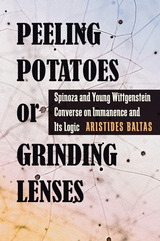
“I can work best now while peeling potatoes. . . . It is for me what lens-grinding was for Spinoza.”—L. Wittgenstein
More than 250 years separate the publication of Baruch Spinoza’s Ethics and Ludwig Wittgenstein’s Tractatus Logico-Philosophicus. Both are considered monumental philosophical treatises, produced during markedly different times in human history, and notoriously challenging to interpret. In Peeling Potatoes or Grinding Lenses, Aristides Baltas contends that these works bear a striking similarity based on the idea of “radical immanence.” Each purports to understand the world, thought, and language from the inside and in a way leading to the dissolution of all philosophy. In that guise, both offer a powerful argument against fundamentalism of all sorts and kinds.
To Spinoza, God is just Nature. God is not above or separate from the world, humanity, or mere objects for, as Nature, He inheres in everything. To Wittgenstein, logic is not above or separate from language, thought, and the world. The hardness of the logical “must” inheres in states of affairs, facts, thoughts, and linguistic acts. Outside there are no truths or sense—only nonsense.
Through close readings of the texts based on lessons drawn from radical paradigm change in science, Baltas finds in both works a single-minded purpose, implacable reasoning, and an austerity of style that are rare in the history of philosophy. He analyzes the structure and content of each treatise, the authors’ intentions, the limitations and possibilities afforded by scientific discovery in their respective eras, their radical opposition to prevailing philosophical views, and draws out the particulars, as well as the implications, of the arresting match between the two.
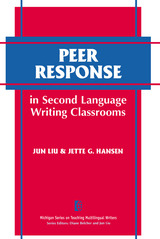
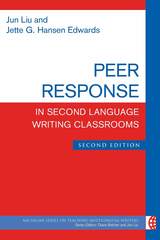
Now that classes are as likely to be online as held in physical classrooms and now that a new generation of digital natives can routinely read and respond to what others write via laptops, tablets, and phones, peer response as pedagogical practice is not just more easily implemented, but it is more likely to feel natural to L2 learners.
The Second Edition is a highly accessible guide to how the world is using peer response and serves as a motivator and facilitator for those who want to try it for the first time or want to increase the effectiveness of the activities—whether via CMC or not. The volume includes 11 forms useful in training students to provide good peer feedback, including a final checklist to ensure teachers have taken all the necessary steps to achieve a successful peer feedback activity.
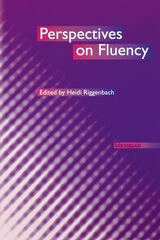
Section 1, What Is Fluency? presents papers that all describe fluency, but in different ways.
The articles in Section 2, Essential Components of Fluency, consider features or components that contribute to impressions of fluency.
Section 3, Cognitive Processes Underlying Fluency, is devoted to an exploration of the psycholinguistic factors underlying fluency.
Three studies are presented in Section 4, Empirical Studies on Nonnative Fluency, and they exemplify the range of approaches to characterizing learners as fluent or nonfluent in their target language.
One objective of Perspectives on Fluency is to provide a starting point for language researchers interested in exploring the concept of fluency, a foundation that, until the arrival of this volume, did not exist. The book can be useful to those approaching fluency from a language assessment perspective, and those interested in the relationship of fluency to oral proficiency.
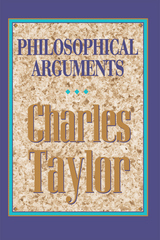
Charles Taylor is one of the most important English-language philosophers at work today; he is also unique in the philosophical community in applying his ideas on language and epistemology to social theory and political problems. In this book Taylor brings together some of his best essays, including "Overcoming Epistemology," "The Validity of Transcendental Argument," "Irreducibly Social Goods," and "The Politics of Recognition." As usual, his arguments are trenchant, straddling the length and breadth of contemporary philosophy and public discourse.
The strongest theme running through the book is Taylor's critique of disengagement, instrumental reason, and atomism: that individual instances of knowledge, judgment, discourse, or action cannot be intelligible in abstraction from the outside world. By developing his arguments about the importance of "engaged agency," Taylor simultaneously addresses themes in philosophical debate and in a broader discourse of political theory and cultural studies. The thirteen essays in this collection reflect most of the concerns with which he has been involved throughout his career--language, ideas of the self, political participation, the nature of modernity. His intellectual range is extraordinary, as is his ability to clarify what is at stake in difficult philosophical disputes. Taylor's analyses of liberal democracy, welfare economics, and multiculturalism have real political significance, and his voice is distinctive and wise.
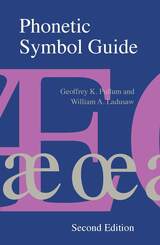
This fully revised second edition incorporates the major revisions to the International Phonetic Alphabet made in 1989 and 1993. Also covered are the American tradition of transcription stemming from the anthropological school of Franz Boas; the Bloch/Smith/Trager style of transcription; the symbols used by dialectologists of the English language; usages of specialists such as Slavicists, Indologists, Sinologists, and Africanists; and the transcription proposals found in all major textbooks of phonetics.
With sixty-one new entries, an expanded glossary of phonetic terms, added symbol charts, and a full index, this book will be an indispensable reference guide for students and professionals in linguistics, phonetics, anthropology, philology, modern language study, and speech science.
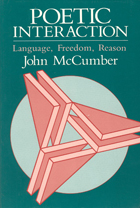
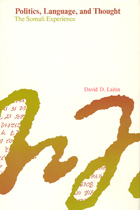
Twelve years after independence, a military government was able to settle the acrimonious controversy by announcing that Somali would be the official language and Latin the basic script. It was hoped that this choice would foster political equality and strengthen the national culture. Politics, Language, and Thought is an exploration of how language and politics interrelate in the Somali Republic. Using both historical and experimental evidence, David D. Laitin demonstrates that the choice of an official language may significantly affect the course of a country's political development.
Part I of Laitin's study is an attempt to explain why the parliamentary government was incapable of reaching agreement on a national script and to assess the social and political consequences of the years of nondecision. Laitin shows how the imposition of nonindigenous languages produced inequalities which eroded the country's natural social basis of democracy.
Part 2 attempts to relate language to political thought and political culture. Analyzing interviews and role-playing sessions among Somali bilingual students, Laitin demonstrates that the impact of certain political concepts is quite different when expressed in different languages. He concludes that the implications of choosing a language are far more complex than previously thought, because to change the language of a people is to change the ways they think and act politically.
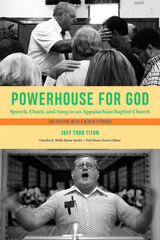
In this second edition of Powerhouse for God, Titon revisits The Fellowship Independent Baptist Church nearly four decades later. Brother John Sherfey, the charismatic preacher steeped in Appalachian tradition has passed away and left his congregation to his son, Donnie, to lead. While Appalachian Virginia has changed markedly over the decades, the town of Stanley and the Fellowship Church have not. Titon relates this rarity in his new Afterword: a church founded on Biblical literalism and untouched by modern progressivism in an area of Appalachia that has seen an evolution in population, industry, and immigration.
Titon’s unforgettable study of folklife, musicology, and Appalachian religion is available for a new generation of scholars to build upon.

However exciting new technologies and educational tools may seem, they can become solely for entertainment unless their design, use, and evaluation are guided by principles of education and language development. Task-based Language Teaching (TBLT) provides an excellent approach for teachers who want to realize the potential of technology to engage learners and improve language learning inside and outside the classroom.
This practical guide shows teachers how to successfully incorporate technology into TBLT in the classroom and to develop technology-mediated materials. Whether the goal is to conduct a needs analysis, to develop classroom or homework materials, or to implement a new approach of student assessment, A Practical Guide to Integrating Technology into Task-Based Language Teaching will be a welcome resource for language teachers at all levels.
Designed for use in the classroom as well as for independent study, the book includes reflective questions, activities, and further reading at the end of each chapter. Examples of units in Chinese, Spanish, ESL, and the hospitality industry are provided.
Georgetown Digital Shorts—longer than an article, shorter than a book—deliver timely works of peer-reviewed scholarship for a fast-paced world. They present new ideas and original content that are easily digestable for students, scholars, and general readers.
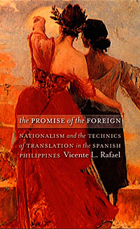
Through close readings of nationalist newspapers and novels, the vernacular theater, and accounts of the 1896 anticolonial revolution, Rafael traces the deep ambivalence with which elite nationalists and lower-class Filipinos alike regarded Castilian. The widespread belief in the potency of Castilian meant that colonial subjects came in contact with a recurring foreignness within their own language and society. Rafael shows how they sought to tap into this uncanny power, seeing in it both the promise of nationhood and a menace to its realization. Tracing the genesis of this promise and the ramifications of its betrayal, Rafael sheds light on the paradox of nationhood arising from the possibilities and risks of translation. By repeatedly opening borders to the arrival of something other and new, translation compels the nation to host foreign presences to which it invariably finds itself held hostage. While this condition is perhaps common to other nations, Rafael shows how its unfolding in the Philippine colony would come to be claimed by Filipinos, as would the names of the dead and their ghostly emanations.
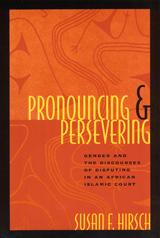
Pronouncing and Persevering focuses closely on the language used in disputes, particularly how men and women narrate their claims and how their speech shapes and is shaped by gender hierarchy in postcolonial Swahili society. Based on field research and court testimony, Hirsch's book debunks the conventional view that women are powerless under Islamic law and challenges the dichotomies through which Islam and gender relations are currently understood.
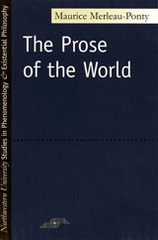
READERS
Browse our collection.
PUBLISHERS
See BiblioVault's publisher services.
STUDENT SERVICES
Files for college accessibility offices.
UChicago Accessibility Resources
home | accessibility | search | about | contact us
BiblioVault ® 2001 - 2024
The University of Chicago Press









